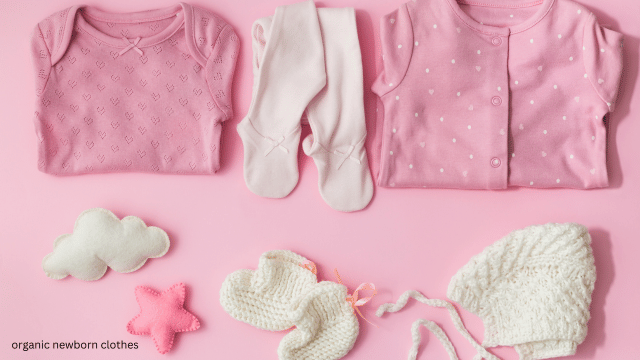As parents, we want the right things for our newborns, from their health and comfort to their impact on the environment. Organic newborn clothes offer a sustainable and healthy choice for dressing your little one. In this guide, we’ll explore the numerous benefits of organic newborn clothes, helping eco-conscious parents make informed decisions about their babies.
What are Organic Newborn Clothes?
Organic newborn clothes are made from materials grown without synthetic pesticides, fertilizers, or genetically modified organisms (GMOs). These clothes are crafted using natural farming methods that prioritize soil health, biodiversity, and sustainability. From cotton to bamboo and wool, organic fabrics provide a safer and more environmentally friendly alternative to conventional clothing materials.
The Benefits of Choosing Organic Newborn Clothes
- Gentle on Baby’s Skin: Organic fabrics are free from harsh chemicals and toxins commonly found in conventional clothing. This reduces the risk of skin irritation, allergies, and sensitivities, making organic clothes ideal for delicate baby skin.
- Healthier for Baby: Conventional cotton farming often involves the use of pesticides and herbicides that can leave residues on the fabric. By choosing organic clothes, you minimize your baby’s exposure to these harmful chemicals, promoting better respiratory health and overall well-being.
- Sustainable Farming Practices: Organic farming methods prioritize environmental conservation, water efficiency, and biodiversity. By supporting organic clothing brands, you contribute to the preservation of natural ecosystems and reduce the carbon footprint associated with conventional agriculture.
- Softer and More Durable: Organic fabrics tend to be softer and more breathable than their conventional counterparts. They are also less prone to pilling and wear, ensuring long-lasting comfort and quality for your baby’s wardrobe.
- Support for Ethical Labor Practices: Many organic clothing brands prioritize fair labor practices and ethical production standards. By choosing organic newborn clothes, you support workers’ rights and ensure that your baby’s clothes are made in safe and humane working conditions.
Tips for Choosing Organic Newborn Clothes
- Look for Certification: Seek out clothing brands that are certified by recognized organizations such as the Global Organic Textile Standard (GOTS). This ensures that the clothes meet strict criteria for organic production and processing.
- Check Labels and Materials: Read clothing labels carefully to identify organic materials such as organic cotton, bamboo, or hemp. Avoid synthetic fabrics and blends that may contain harmful chemicals.
- Consider Second-Hand Options: Embrace sustainability by exploring second-hand stores, thrift shops, or online marketplaces for gently used organic clothes. This reduces waste and extends the lifecycle of clothing items.
- Invest in Versatile Pieces: Opt for organic clothes that can be easily mixed and matched to create various outfits. Choose timeless designs and neutral colors that can be passed down or reused for future siblings.
Conclusion
Choosing organic newborn clothes is not only a conscious decision for your baby’s health and comfort but also a commitment to environmental stewardship and ethical practices. By prioritizing natural fabrics, you can provide your little one with safe, sustainable, and gentle clothing. As eco-conscious parents, let’s embrace organic clothes’ benefits and create a brighter, healthier future for our children and the world they will inherit.











